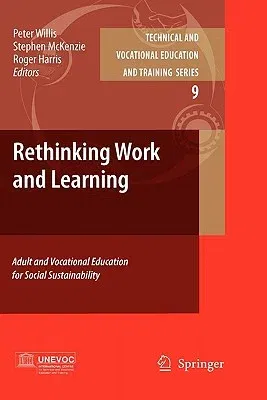Rethinking Work and Learning: Adult and Vocational Education for Social SustainabilityPaperback, 28 October 2010

Qty
1
Turbo
Ships in 2 - 3 days
In Stock
Free Delivery
Cash on Delivery
15 Days
Free Returns
Secure Checkout
Part of Series
Technical and Vocational Education and Training: Issues, Con
Part of Series
Technical and Vocational Education and Training: Issues, Concerns and Prospects
Print Length
274 pages
Language
English
Publisher
Springer
Date Published
28 Oct 2010
ISBN-10
9048180376
ISBN-13
9789048180370
Description
Product Details
Book Format:
Paperback
Country of Origin:
NL
Date Published:
28 October 2010
Dimensions:
23.39 x
15.6 x
1.6 cm
ISBN-10:
9048180376
ISBN-13:
9789048180370
Language:
English
Location:
Dordrecht
Pages:
274
Publisher:
Series:
Weight:
421.84 gm

